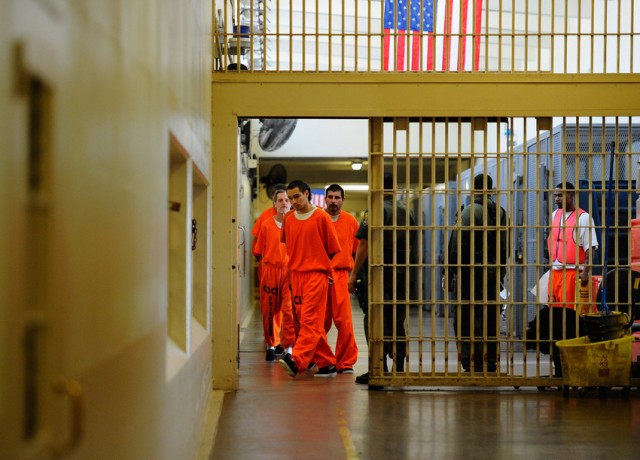The state had asked the judges for a delay until the end of 2016 to meet their population order, which was originally set to take effect last Dec. 31. Brown administration officials argued that the state has already made significant progress toward meeting the population limit and that, under a bill enacted last September, the state had set aside funding to bring the prisons into compliance.
The court said it was granting today's extension through February 2016 on the understanding that California officials will undertake a sweeping program to cut the number of inmates, including:
- Contracting for additional inmate space in county jails and private facilities.
- Increasing credits for time served for nonviolent, second-strike and minimum-security inmates.
- Granting earlier parole hearings for second-strike inmates.
- Granting early parole to certain inmates who already have future parole dates set.
- Expanding the parole program for medically incapacitated inmates.
- Adopting new parole reviews for inmates 60 years old and older who have served 25 year or more of their sentences.
- Expanding inmate re-entry programs throughout the state.
- Implementing a new alternative-custody system for female inmates.
In an accompanying opinion, the panel said that forcing the state to comply immediately with the inmate-reduction order would result in thousands of inmates being sent to facilities out of state. The judges said that outcome would be neither desirable nor durable:
This solution is neither durable nor desirable. It would result in thousands of prisoners being incarcerated hundreds or thousands of miles from the support of their families, and in hundreds of millions of dollars that could be spent on long-lasting prison reform being spent instead on temporarily housing prisoners in out-of-state facilities.
The order is part of litigation that began in 1990, alleging the state was violating inmates' constitutional rights through substandard mental health and medical care. The three-judge panel has ordered cuts in the prison population as part of its prescription for dealing with the medical care issues.
In their opinion, the judges criticized the state for not having complied with its earlier prison population directives:
In the four and a half years between our 2009 order and the date of this opinion, defendants have instituted only one significant measure to relieve overcrowding in California prisons: “Realignment,” a program that shifted responsibility for criminals who commit non-serious, non-violent, and non-registerable sex crimes from the state prison system to county jails. Apart from Realignment, defendants have taken no significant steps toward reducing the prison population and relieving overcrowding despite repeated orders by this Court requiring them to do so. Instead, defendants have continually failed to implement any of the measures approved by this Court and the Supreme Court that would have safely reduced the California prison population and alleviated the unconstitutional conditions of medical and mental health care in the prisons.
Gov. Jerry Brown issued a brief statement after today's ruling: “It is encouraging that the Three-Judge Court has agreed to a two-year extension. The state now has the time and resources necessary to help inmates become productive members of society and make our communities safer.”
Inmates' attorneys had wanted the judges to require the state to meet the population cap by May of this year.
"We're very disappointed. We believe that there are substantial constitutional violations continuing right now, which result in prisoners suffering and dying because of prison overcrowding," said Don Specter, director of the nonprofit Prison Law Office that represented inmates in the crowding lawsuit.
Weisberg considers the order to be a victory for the plaintiffs though.
"I think it's a significant victory in some ways for the plaintiffs, even if they don't acknowledge it, because this is the first order which really directs the state to take a hard look at some measures it hadn't looked at before, especially changes in parole policy," Weisberg says.
Specter said inmates' lawyers are pleased the judges will appoint compliance officer to police the population reduction targets, which will bring "a certainty to the population reduction which hasn't been there before."
The inmates' attorneys could consider appealing the judges' order, he said.
Below: the panel's six-page order followed by its five-page opinion:
Note: This post contains reporting from the Associated Press.
